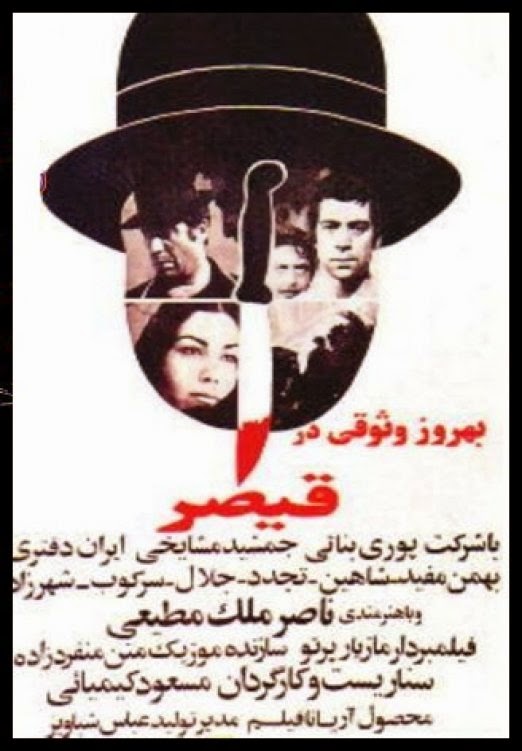Gheisar (1969)
For those whose knowledge of Iranian cinema consists only of the art-house staples like Kiarostami, or Pahani, the films of Iran's pre-revolutionary cinema may come as something of a shock. Free from the religious censorship of the current era (though certainly saddled by an altogether different yet similar censorship), these films are often very down and dirty. I hesitate to use the term westernized, because a film like Gheisar is a quintessentially Iranian film. It belongs so specifically to its time and place that it could not have been made anywhere else. Behrouz Vossoughi, the tough guy of Iran's pre-revolutionary cinema, plays Gheisar, a former small time gangster gone straight, who vows revenge upon the man who raped his sister and drove her to suicide. What is so fascinating about Gheisar is how thoroughly it depicts a very conservative and working class neighborhood, and dissects its social mores and relations. Iran has never been a secular (or democratic) state. Islam has been the official religion for over 1300 years, and the supposedly "secular" regime of the Shah was only really present in the urban, modernized areas.
Despite this, Iran has had a history of powerful revolutionary socialist movements that have come very close on several occasions to seizing power. I mention that Iran has never been a democratic state, because even under the rule of the revered Mossadegh, these revolutionary and democratic elements were always brutally suppressed. During his premiership, the communist Tudeh Party launched a massive demonstration demanding he oust the Shah and declare a secular democratic republic only to have him send out the army to crush the demonstrations. All of this is important to have some grasp of while watching this movie, because it helps one understand the motivations of these characters. In lieu of any progressive force that was willing to truly go all the way, the Iranian working classes have remained deeply rooted in traditional Islamic values. Gheisar refuses his mother and uncle's advice that he report the rapists to the police and let the justice system handle the case, and insists on exacting his own eye-for-an-eye revenge, even at the cost of his coming marriage and social mobility. The modest conservatism of his late sister and fiancee is contrasted by the brazen sexuality of the nightclub dancer who helps lead Gheisar to his target. There is an extended sequence where she sings a song dressed only it what can be described as a wisp of fabric. Later, she strips in front of Gheisar. Even American and European cinema were still in an embryonic stage in terms of their risque content.
Gheisar is about these very contradictions, these very explosive contradictions that only a decade later would finally explode. But on a purely cinematic level, this is a thrilling and entertaining revenge drama. Kimiai's style here is energetic and grounded. The crisp black-and-white images evoke something of a classical epic, and coupled with Esfandiar Monfaredzadeh's stirring score, it creates an effect that can only be described as pure cinema. Like the Italian films of the era, everything is dubbed here, but it creates a unique effect. There is a passion on the part of the actors and those who who are voicing them. Certainly Gheisar is one of the masterpieces of world cinema. Like Kimiai's other films, it is in desperate need of a proper restoration and DVD release.


Comments
Post a Comment